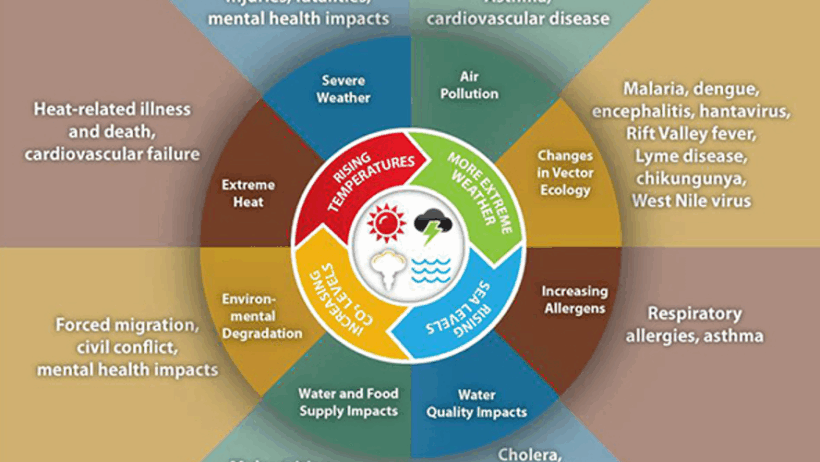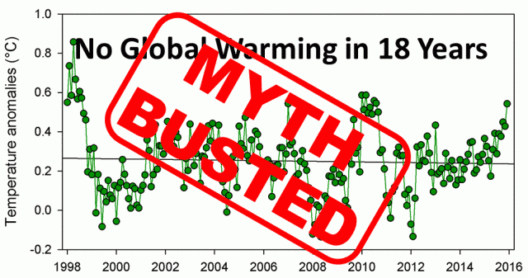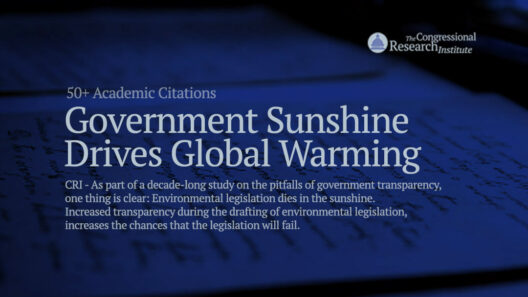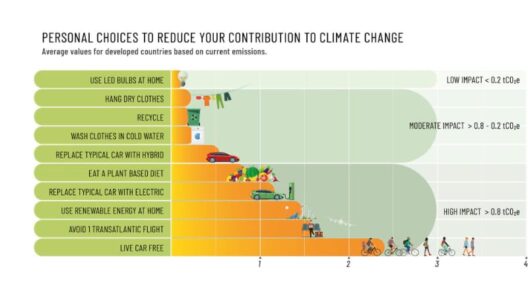In recent years, the discourse surrounding climate change has gained both fervor and contention. While the scientific community overwhelmingly recognizes climate change as a pressing global crisis, a segment of the population continues to deny its reality. This denial takes the form of steadfast skepticism toward the concept that human-induced activities are contributing to observable changes in our climate. However, this perspective invites scrutiny—especially when one examines the multifaceted impacts of global warming, particularly concerning sea levels, heatwaves, and catastrophic disasters.
To decipher the climate deniers’ dilemma, it is essential to understand the mechanisms of global warming. The burning of fossil fuels releases an abundance of greenhouse gases, primarily carbon dioxide and methane, into the atmosphere. These gases trap heat from the sun, creating a “greenhouse effect.” This phenomenon has been extensively documented; it is not merely a hypothesis but a scientifically validated reality. As the planet warms, a cascade of effects begins to unfurl, intricately linked to rising sea levels, extreme heat events, and increased disaster frequency.
One of the most alarming revelations from climate science is the dramatic rise in global sea levels. Over the past century, sea levels have risen approximately 8–9 inches, primarily due to thermal expansion of seawater and the melting of glaciers and polar ice sheets. For climate deniers, reconciling this empirical evidence with their skepticism poses a formidable challenge. Denial often stems from an inability or unwillingness to confront uncomfortable truths. However, the observable data does not lie; coastal communities worldwide face perilous futures as they grapple with rising tides, which pose existential threats to habitats and economies alike.
As sea levels rise, the repercussions extend beyond the immediate threat of inundation. Coastal flooding has become more prevalent, leading to saltwater intrusion into freshwater resources and harming local ecosystems and agriculture. This intrusion catalyzes a chain reaction that exacerbates food insecurity and displaces populations, contributing to a phenomenon known as climate migration. The reluctance to acknowledge these realities not only undermines the notion of responsible environmental stewardship but also stymies potential solutions that could mitigate these dire consequences.
Alongside rising sea levels, heatwaves are another formidable consequence of global warming that refuses to be ignored. The frequency and intensity of heatwaves have dramatically increased, with global average temperatures climbing. The World Meteorological Organization warns that heatwaves can elevate mortality rates, strain energy resources, and amplify drought conditions. This domino effect affects not only human health but also leads to substantial economic losses. Climate deniers often assert that fluctuations in temperature are part of a natural cycle, yet the historical data reveals an alarming spike in average temperatures that correlates with industrialization and high carbon emissions.
The psychological toll of heatwaves is perhaps one of the less visible but equally important impacts of climate change. Mental health experts are beginning to assess the connection between extreme temperatures and mental distress, linking heat-related stressors to increased instances of anxiety and depression. By disregarding the connection between climate change and public health, climate deniers inadvertently contribute to a public narrative that obfuscates urgent mental health crises, compounding the struggles affected populations experience.
Natural disasters, too, are inextricably tied to the phenomenon of climate change. The increasing severity and frequency of hurricanes, wildfires, and floods are not merely anecdotal outcomes of an increasingly volatile climate. Scientific studies have established a strong correlation between climate change and the intensity of such disasters. The rising temperatures and fluctuating weather patterns create favorable conditions for extreme events, posing an ever-present threat to regions already vulnerable to natural calamities. Acknowledgment of this truth is vital, as it calls for decisive action at local, national, and international levels to bolster resilience against these threats.
For many climate deniers, the dilemma lies in reconciling a steadfast belief in their perspective with overwhelming evidence to the contrary. Ignoring scientific consensus and substantial empirical data results in cognitive dissonance—a psychological state of duality that often leads to further entrenchment in denial. This predicament has led to the proliferation of misinformation and conspiracy theories that distract from actionable strategies addressing climate change. Such narratives can mislead the public and policymakers alike, impeding concerted efforts aimed at climate mitigation.
However, the conversation surrounding climate change must shift toward a framework that emphasizes curiosity and constructive discourse. Engaging skeptics requires a blend of empathy and education, steering conversations toward collaborative engagement rather than confrontational criticism. With the world facing unprecedented environmental challenges, acknowledging the evidence and fostering a deeper understanding of the underlying mechanisms of climate change is crucial.
Moving forward, solutions to rectify our trajectory are within our grasp. Employing renewable energy sources can significantly curtail emissions and mitigate the pace of climate change. Reforestation efforts can stabilize ecosystems, absorb carbon dioxide from the atmosphere, and enhance biodiversity. Investments in sustainable infrastructure can help protect vulnerable communities. By reframing the discourse and embracing innovation, humanity can transcend the deniers’ dilemma and foster a collective commitment to a sustainable future.
In conclusion, the implications of climate change—rising sea levels, intensifying heatwaves, and escalating disasters—demand serious attention. The challenge remains for skeptics to confront a wealth of evidence that contradicts their beliefs, and for advocates to foster dialogue that piques curiosity rather than resistance. Knowledge is a powerful tool—igniting awareness and action among individuals, communities, and policymakers alike is indispensable. The time to engage in meaningful conversations about our planet’s future is now.







